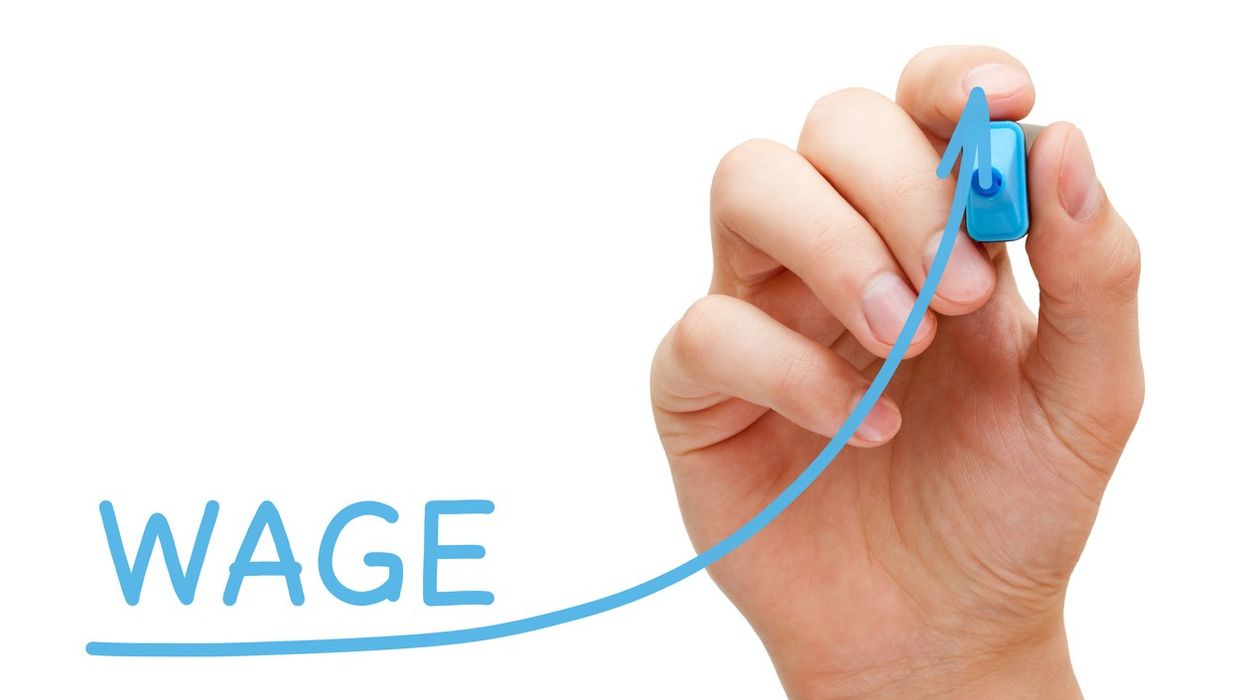AROUND two million lowest-paid workers in the UK will benefit as an increase in national minimum and living wages came into effect on Thursday (1), an official statement said.
The rate hike include a 2.2 per cent increase in the national living wage to £8.91, the equivalent of more than £345 extra per year for full-time workers. The age threshold for the same has been lowered to 23 years from 25 for the first time since 2016.
With the increase, full-time workers on the living wage from April will be taking home £5,400 more annually than they were in 2010, the statement added.
“The national minimum and living wages have increased every year since they were introduced, supporting the lowest paid, and despite the challenges we’ve faced recently, this year will be no different. That’s why we’re providing a well-earned pay rise to two million people, which will be a welcome boost to families right across the UK," said prime minister Boris Johnson.
“To make sure the next generation isn’t left behind, everyone over 23 years old will also now be eligible.”
The national minimum wage (21-22) has increased 2 per cent, from £8.20 to £8.36, and for 18-20 years it has increased 1.7 per cent from £6.45 to £6.56. The increased wage for those under 18 will be £4.62, a hike of 1.5 per cent.
The national minimum wage applies to those from school leaving age to 22 and will benefit workers in retail, hospitality and cleaning and maintenance sectors.
Besides, apprentice rate has increased from £4.15 to £4.30.
“To support our next generation of workers, we’ve lowered the age threshold for the Living Wage to 23 - ensuring even more people have the security of a decent wage," said business secretary Kwasi Kwarteng.
“This increase will help millions of families in every corner of the country. I’d urge all workers to check their pay packet to ensure they’re getting what they are entitled to, and remind employers of their duty to pay the correct wage.”
Chancellor Rishi Sunak said: “We know that the past year has been very difficult for businesses and families across the country. This pay rise will help support employees as we steadily reopen the economy and get more people back to work.
“At the same time, our Plan for Jobs is helping support businesses to recover and create more jobs, with measures such as VAT cuts, business rates relief, and cash grants for the most affected sectors.”
According to a statement, the £352 billion support package has helped to safeguard jobs, businesses and public services in every region and nation of the UK.
The package includes protecting 11.2 million jobs through the furlough scheme, £18.9bn to support 2.7 million self-employed workers to date, and billions of pounds in tax deferrals and grants for businesses.
The £2 billion Kickstart scheme has created over 120,000 opportunities for young people and offers employers £3,000 for every new apprentice they hire, the statement added.
The government has urged workers to speak with their employer if they are not being paid the correct wage. They can also contact the advisory, conciliation and arbitration service on 0300 123 1100, or complain to HMRC.





